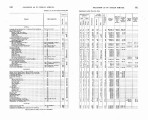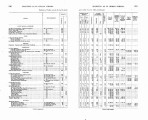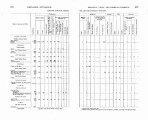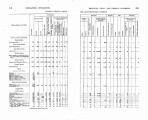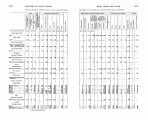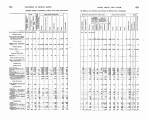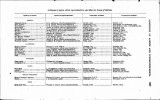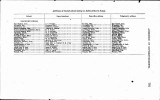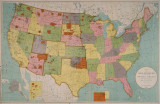| OCR Text |
Show I 30 CUMMIS~IONER OF INDIAN AFFAIRS. build up a sturdy yeomanry. It is dotting the West with deserted army posts, costing millions to build, equip, and maintain, turnink barracks into dormitories and cannon into plowshares. The rattle of the saber and the clank of war have given way to the busy hum of the shops and the cheerful call of the red plowboy, and instead of sending out a dashing troop to carry desolation and carnage to the Indian home, now emerges the educated Indian to take his place in our civilization as a wage-earner and peaceful worker in the shops and on the farms. The future.-8n effort has been made above to present some of the facts in historical sequence of Indian civilization. These facts illns-trate a plan of absorption of savage and hafharous races, which no other great nation has pursued. Others have either decimated or exterminated the conquered inhabitants of their territory, or reduced the aboriginal peoples to a servitude which has broken the spirit and degraded what otherwise might have proved valuable acquisitions to the blood of the nation. . It is customary in some quarters to speak snecringly of the Indiin as an "inferior being." He is inferior in many of those qualities which have made the American the dominant race, but in others he is the equal and he is far superior to thousands of foreign immigmntr who annually throng our ports and paw, in s few years, to full citizenship, with no appreciation of our aspirations or knowledge of our laws and language. The Indian has always been a free man. He was never a slave to master or potentate. He chose his rulers, who ruled because of their ability. You might degrade, but not enslave him. The American Indian retains his pride of ancestry and glories in the fact that he is an Indian. No bluvh of shame mantles his face when he is designated by his racial name. He possesses an intense and fervent love of offspring, and no matter how degraded, how reckless, how brutal, the prattle of his children is the sweetest music to his ears. These two qualities-pride of ancestry and love of offspring-will make good citizens, self-respecting earnest men and women, when the huskof savagery and barbarism have been taken off by the gradual evolution of educational processes. There are great hopes for a race with these high traits of character. Such a race is w6rthy of all the time, money, and labor expended on it by a generous Congress and people. While an optimistic view of the Indian has been presented, it is believed to be a fair one; yet there remains unfortunately a dark side to the picture. The full fruition of our efforts for the Indian has not been attained, and dark clouds hang upon the horizon. The pathway of his civilization has never been a flowery one, and its future, while smoother, still gives promise of rough spots. The Indian has not yet been civilized. Some tribes and many indi-viduals still remain whose naturea refuse the impress of the white man's stamp. Many who have received it have found the impression |






















































































































































































































